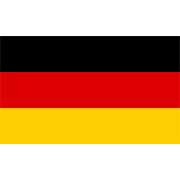Fiscal subject related
Exceptions to the Sunday and holiday closing requirement are only granted for certain categories of stores, including:
- Retail stores at airports, train stations, and other transportation facilities
- Stores that sell souvenirs, books, and other similar items at tourist destinations
- Gas stations and stores at gas stations
- Bakeries, flower shops, and other stores that sell food and essential household items, with a sales area of less than 100 square meters
- Stores that are open for cultural or entertainment purposes, such as museums, theaters, and cinemas
However, even for these exceptions, there are strict rules regarding the opening hours and conditions for operation on Sundays and public holidays. In general, stores are only allowed to be open for a limited time, usually between 6 a.m. and 10 p.m., and employees who work on Sundays and public holidays are entitled to extra pay or a compensatory day off.
The law on shop opening hours also applies to online retailers, who are generally not allowed to deliver goods on Sundays and public holidays, except for certain categories of items, such as fresh food, flowers, and newspapers.
There are some regional variations in the application of the law on shop opening hours, as the regulation of retail sales is a matter of state legislation. For example, in Berlin, stores are allowed to be open on four Sundays per year, while in Bavaria, stores are generally closed on all Sundays and public holidays.
Overall, the rules for store opening hours in Germany are strict and complex, but they serve important purposes in protecting the rights of employees and promoting social and cultural values.
Other news from Germany
New document was uploaded: S4FiscalBackoffice Patch
S4F backoffice patch is intended for users who have already installed S4F backoffice and are intended to update existing installations to latest version. To do so apply only patches that are marked with version number that is newer than your currently installed instance of backoffice. Please make sure to install all available patches sequentially (without skipping). This package contains instruction, release notes, changelog and software packages required for deployment of this software component. Read more
Subscribe to get access to the latest news, documents, webinars and educations.
Already subscriber? Login


Germany Publishes New VAT Return and Prepayment Forms for 2026
 Germany
Author: Ivana Picajkić
Germany
Author: Ivana Picajkić
Germany has published new legally binding VAT return and advance-payment forms for 2026, released on 29 December 2025 and mandatory for all VAT filings via ELSTER. Read more
Subscribe to get access to the latest news, documents, webinars and educations.
Already subscriber? Login


Germany Publishes Its Electronic Business Address (GEBA)
 Germany
Author: Ivana Picajkić
Germany
Author: Ivana Picajkić
Germany has introduced the German Electronic Business Address (GEBA), published on 18 December 2025 by XStandards Einkauf, as a standardized electronic identifier to accurately route e-documents—especially e-invoices—within networks like Peppol. While GEBA is voluntary, it enhances interoperability, clarity of sender/receiver identification, and readiness for future digital tax and reporting frame... Read more



Germany: Businesses Must Prepare for E-Invoicing Earlier Than Expected
 Germany
Author: Ivana Picajkić
Germany
Author: Ivana Picajkić
Although mandatory B2B e-invoicing in Germany will only apply from 2027, businesses have been allowed to use e-invoices voluntarily since January 2025 and adoption is accelerating as 2026 approaches. As more suppliers switch early, companies operating in Germany already need to be technically ready to receive structured e-invoices to avoid compliance and operational disruptions. Although mandatory... Read more



Germany: Court Confirms Tax Authorities Can Request Tax-Relevant Emails During Audits
 Germany
Author: Ivana Picajkić
Germany
Author: Ivana Picajkić
German tax authorities are increasingly requesting tax-relevant emails during audits, and a 2025 Federal Fiscal Court ruling confirmed that such emails must be retained and disclosed when they contain relevant commercial or tax information. Read more
Subscribe to get access to the latest news, documents, webinars and educations.
Already subscriber? Login


Germany and France Update their Common E-Invoicing Standard
Germany and France will jointly update their hybrid e-invoice formats ZUGFeRD and Factur-X on 15 January 2026 to align with EN 16931 and support their upcoming B2B e-invoicing mandates. The new version expands technical capabilities, improves interoperability, and ensures full compatibility between both formats as Europe prepares for unified digital reporting under ViDA Germany and France have ann... Read more



Germany Lowers VAT on Food in Restaurants to 7% from 2026
 Germany
Author: Ivana Picajkić
Germany
Author: Ivana Picajkić
The German government has approved the Tax Amendment Act 2025. Starting January 1, 2026, the VAT rate for all food served in restaurants will be reduced to 7%. This change will support restaurants, cafés, bakeries, butchers, and catering businesses What changes on January 1, 2026? Food eaten on-site in restaurants will drop from 19% to 7% VAT. This creates a uniform 7% VAT rate for: din... Read more


